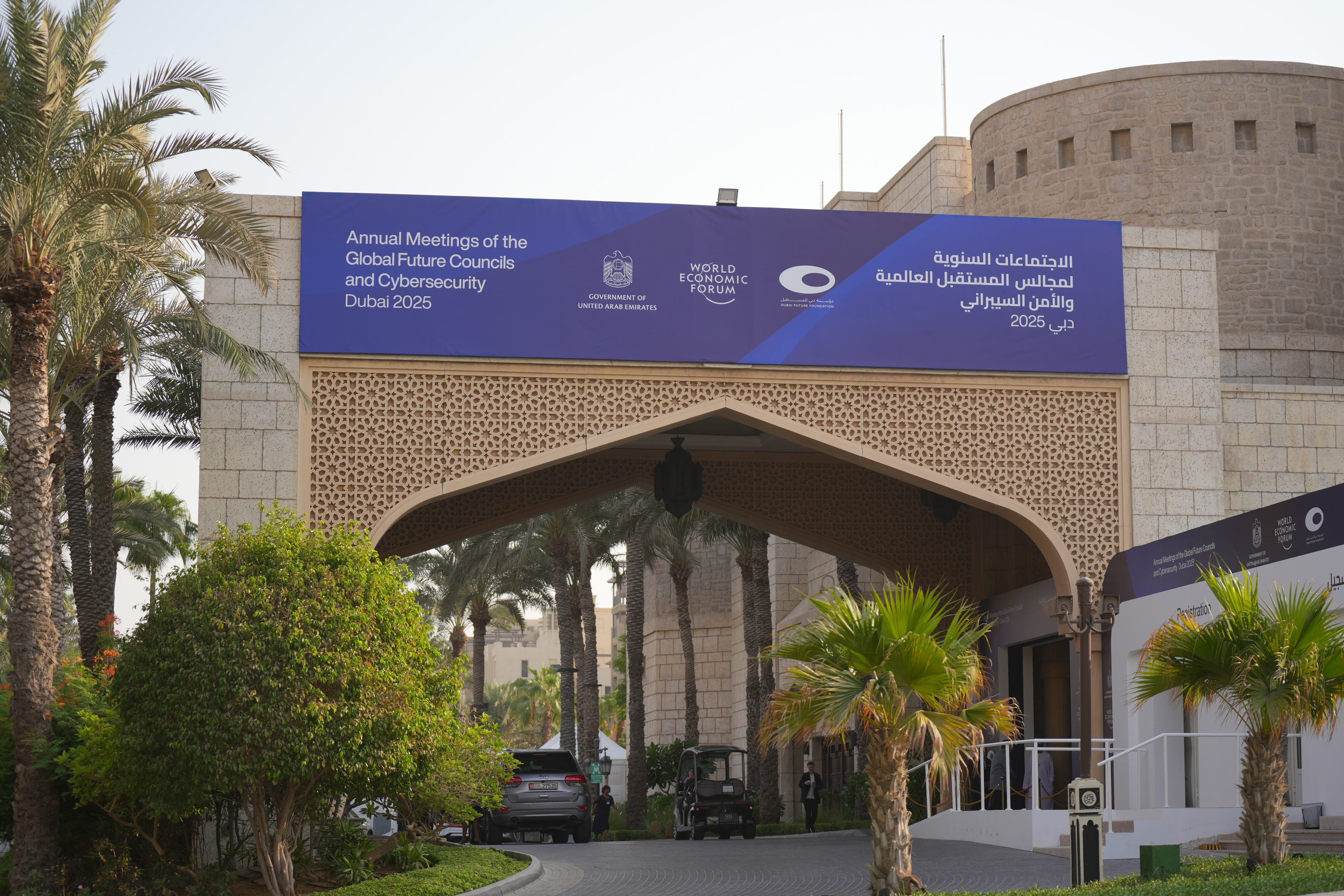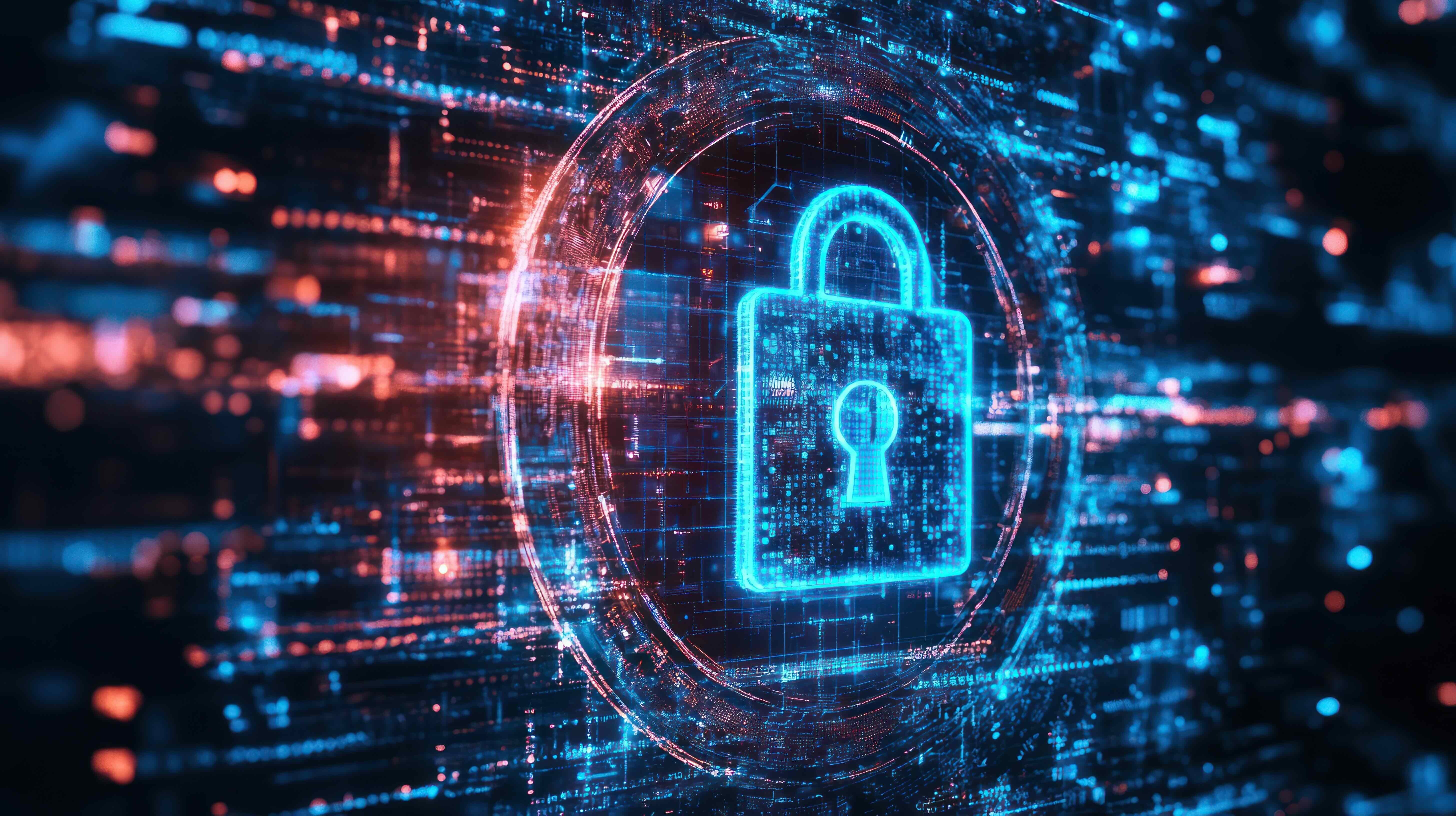Digital trust: How to unleash the trillion-dollar opportunity for our global economy

Digital trust is key to growing economies. Image: Unsplash/Lukas Blasek
- Building digital trust into the world's digital economy could unleash trillions of dollars of opportunities, according to The Digital Trust Index.
- But a 'digital trust gap' is emerging that threatens to undermine the full potential and benefits of a thriving global digital economy.
- Digital identity is vital element of building trust both online and in our wider economies – to everyone's benefit.
Building digital trust into our global digital economy can unleash trillions of dollars of opportunities. But if we don’t know for certain who we are interacting with online, we cannot have trust. Digital identity must therefore be the foundational element to our digital economy and here is why.
Technological advancements have brought a wealth of opportunities within touching distance. From artificial intelligence to big data, cryptocurrency to blockchain, we’re constantly facing imminent technological revolutions, game-changers, and paradigm shifts.
Digital trust key to reaping rewards of new technologies
However, to reap the rewards of any of these technologies, we must first establish one universal value – trust.
Recently the prevalence of cybercrime has taken a toll on trust levels and, as a result, our economies. So, with the current economic headwinds, it is vital we address the issue of digital trust now.
As economies moved online there was an assumption that the inherent trust which exists in the physical world – because we can see and know who we are interacting with – would be replicated in the digital world. This is not the case, and we now find ourselves needing to build digital trust.
Digital trust is the belief we have that we are interacting online with genuine people, rather than bots, or someone pretending to be someone they aren’t.
It is also the faith we have that the systems we rely upon are secure, reliable and privacy preserving. It’s about ethics, fairness and inclusivity.
When we use digital products and services, we are confirming that we trust them and the whole ecosystem that surrounds them.
Trust fundamental to building digital ecosystems
While trust is an abstract idea, it is fundamental to building a better digital ecosystem. If we don’t know for certain who we are interacting with online, that the technologies and processes involved are secure and ethical, we will stop interacting online.
And if enough of us lose trust in online services, large parts of the global economy and therefore society will start to break down.
The World Bank estimates that the digital economy contributes to more than 15% of global gross domestic product (GDP), and in the past decade it has been growing at two and a half times faster than physical world GDP.
But, if we can’t carry out trade or civic duties online because we don’t have trust, we take a step backwards – physical localities and size become economic advantages again where digital had lowered barriers to entry, levelled the playing field and driven inclusion of populations previously excluded.
This got us thinking about the positive impact that building digital trust could have on our lives. So, we worked with economists at the Centre for Economics and Business Research (Cebr) to look at the value that building digital trust could bring to society and economies around the world.
The Digital Trust Index: the value of digital trust report has quantified the missed opportunity caused by a lack of digital trust. We found that a 5% point increase in digital trust results in an average increase in GDP per capita of $3,000.
From a GDP per capita perspective, this means we can significantly impact the global economy. For example, a five percentage point increase in digital trust in the US would grow GDP per capita from $62,500 to $65,000.
Meanwhile, the UK would grow GDP per capita from $46,000 to $49,000, and Singapore would grow GDP per capita from $97,000 to $100,000.
A relatively modest increase in digital trust can have a significant positive impact on the global digital economy.
‘Digital trust gap’ differs across world
A ‘digital trust gap’ is emerging. Non-Western markets have a positive trust gap indicating consumer attitudes to digital trust exceed societal trust levels.
Conversely, Western markets have a negative trust gap where societal trust is higher than trust in digital services.
The factors driving the trust gaps include personal experience of fraud, reading about people’s experiences of falling victim to fraud, and not understanding what information can be trusted online.
But what is the impact of scarce digital trust? We calculated the digital economy was valued at $14.5 trillion in 2021, but the estimated global cost of cybercrime was $6 trillion – or 41% of the digital economy.
What is more concerning is that by 2025, we calculated that the digital economy will be worth $20.8 trillion, but cybercrime will be worth $10.5 trillion.
So despite growing the value of the digital economy, cybercrime will grow more and account for 50% of the size of the digital economy in 2025.
Identity key to building digital trust
This means we cannot leave our digital world to chance. In a conversation with Apple Co-founder Steve Wozniak, I asked him if he would do anything differently with regards to the creation of the internet.
His response was that if we had known what we know now, we would have built in security and identity right from the start.
Which brings me to my final point, that identity must be the foundational element to building digital trust, and therefore our global digital economy.
If you don’t know for sure that you are interacting with your bank, not a fraudster, or a real person not a fake social media account, how do you trust in a digital world?
Almost half of all consumers we surveyed expect governments to create a more secure digital world. To achieve this, 68% of respondents stated an interest in the creation of a digital identity system, overseen by an independent body.
Consumers also told us they would trust banks and financial services firms the most to create and maintain an identity system.
How digital trust can boost our economies
Our GDP numbers are not a forecast or a prediction, but a reflection of the application of the average factor of building digital trust into our economies across all countries in our survey.
Given the current global economic challenges – with the possibility of current economies to contract and the cost of living to continue to increase – a glimpse of what digital trust has the potential to deliver is enough to demonstrate why digital identity must be front and centre for the world economy.
Higher incomes generally mean better outcomes, not only for private citizens earning potential, but it means governments have a greater capacity to provide public services such as education, health care and other social assistance programmes.
Don't miss any update on this topic
Create a free account and access your personalized content collection with our latest publications and analyses.
License and Republishing
World Economic Forum articles may be republished in accordance with the Creative Commons Attribution-NonCommercial-NoDerivatives 4.0 International Public License, and in accordance with our Terms of Use.
The views expressed in this article are those of the author alone and not the World Economic Forum.
Stay up to date:
The Digital Economy
Forum Stories newsletter
Bringing you weekly curated insights and analysis on the global issues that matter.
More on CybersecuritySee all
Julie Iskow and Kim Huffman
November 11, 2025








